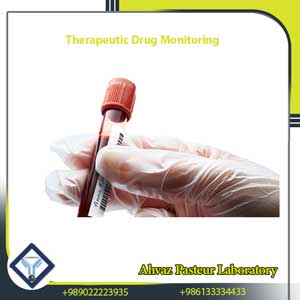
Therapeutic Drug Monitoring
TDM is a branch of clinical biochemistry and clinical pharmacology that examines the concentration of drugs in the blood.TDM has tried to improve the patient’s therapeutic condition by adjusting the drug level through clinical trials and confirming their results in different populations.
The level of treatment is the concentration of drug in the serum, which appears to be present in most people in that area, and the risk of drug toxicity is low.
When interpreting the results of the drug concentration, factors such as time, amount and manner of drug use, patient response, and clinical goals should be considered.
The time to perform the test is to monitor the level of medication medication, try to carry out the test according to the physician’s instructions to the laboratory.
Available tests:
- Phenobarbital (Serum Level)
- Phenytoin (Serum Level)
- Cyclosporine (Blood Level)
- Tacrolimus (Blood Level)
- Sirolimus (Blood Level)
- Carbamazepine (serum)
- Acetaminophen (Serum Level)
- Digoxin (Serum Level)
- Valproic Acid (Serum Level)
- Drug Screen in urine (Qualitative)
- Methadone (MTD) Urine
- Amphetamine (AMP) Urine
- Methamphetamine (MAM) Urine
- OPI (Morphin-Heroein-Codein) Urine
- Ecstasy (MDMA) Urine
- Tricyclic antidepressant (TCA) Urine
- Cocaine (COC) Urine
- Benzodiazepine (BZO) Urine
- Barbiturates (BAR) Urine

therapeutic drug monitoring
